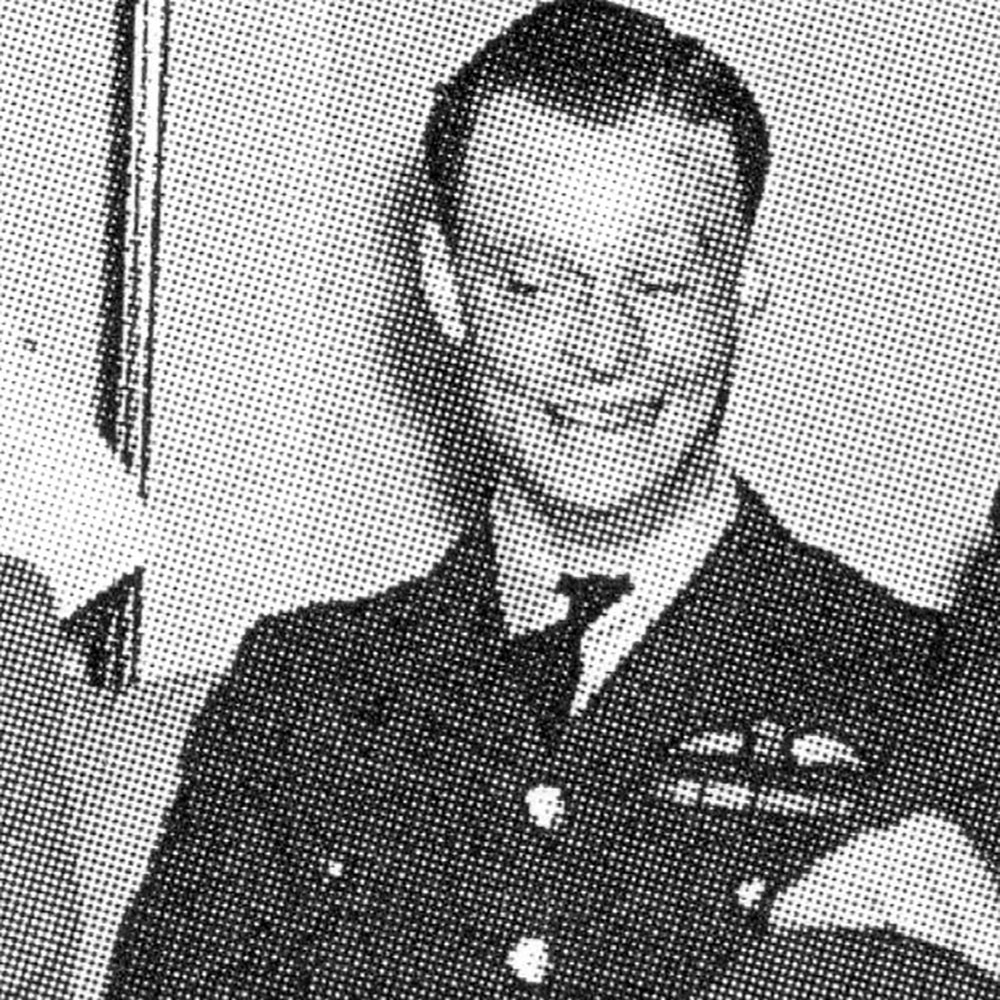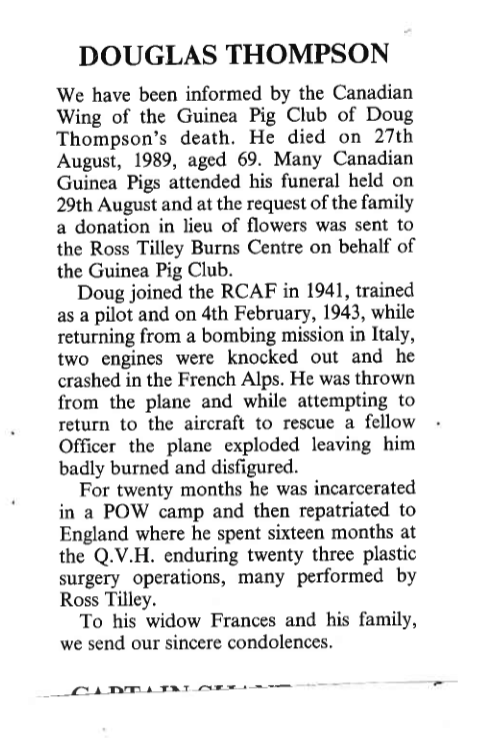Context
Thursday, February 4, 1943.
It was 22:30 hrs, and Lancaster W4118 was four hours and twenty minutes into a mission to bomb the Industrial Italian city of Turin. Six Lancasters from 106 Squadron had left RAF Syerston as part of a bombing mission consisting of 188 aircraft.
The last message sent by the Radio Operator was that one engine had failed; they were near Dijon and losing height rapidly.
The plane crashed in the hamlet of Perrusal, near the village of Valsonne. Four crew members died, and Four survived. Their stories are both heart-wrenching and incredible.
Sergeant Douglas Lyall THOMPSON 1920 - 1989

Écrivélo Excerpt
On this fateful day, for Operation Torino, the pilot and captain of the Admiral Prune was Sergeant Douglas Lyall THOMPSON; his Flight Engineer, Sgt Norman Burt JOHNSTONE, was sitting to his right. The Navigator Flight Sergeant Frank Lawrence DARLINGTON was on the other side of the blackout curtain in his seat located on the right of the fuselage. Wireless Operator Sgt Wilfred BAKER was near him but situated on the left. The Upper Gunner, Sgt Richard Peter SUTTON, was located halfway down the fuselage, sitting in a hammock-type seat and looking out through a perspex bubble, watching out for enemy activity. The rear gunner, or tail-end Charlie, and undoubtedly the most vulnerable of all posts, was Sgt John PICKEN. On this foray, The Admiral Prune had a crew of eight, rather than the usual seven because there were two bomb aimers, Sgt Peter WARD and Flying Officer George Rowland POWELL, who were sitting together before the crash[i] and were in all likelihood in the front gunner’s area beneath the pilot’s floor.
Death

Research
Research for this section of the book included visits to the UK National Archives in Kew, London, and the East Grinstead Museum, which celebrates the work of the Guinea Pig Club during World War II. More locally, articles written for the Valsonne Magazine, The Societe d’Histoire d’Archeologie et de Genealogie des Monts de Tarare. As for books on the subject, consider “As for the Canadians” by Rota Donovan, “The Guinea Pig Club” by Emily Mayhew, “McIndoe’s Army” by Edward Bishop, and “Footprints in the Sands of Time” by Oliver Clutton-Brock.
Plus the invaluable help of Dan E, for research on the Australian Connection.
